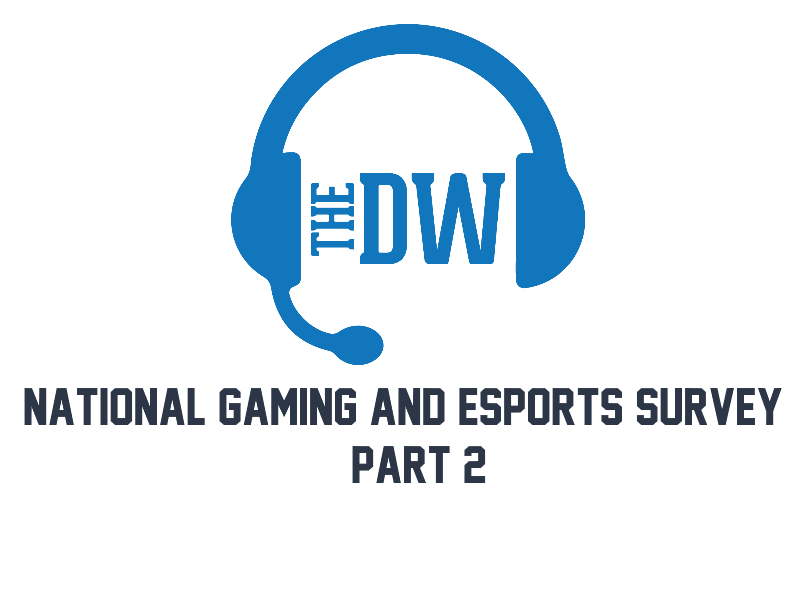Do Video Games Contribute to School Violence?
A big political issue recently is the frequency of school shootings in the United States. Some point to violent video games as a potential cause, and TDW subscribers have a very pointed opinion on the matter.
An overwhelming majority of TDW subscribers believe there is no connection between violent video games and school shootings (79%). The GGP, however, leans towards the other side on this issue, with 47% of respondents indicating they believe there is a connection and only 33% believe there is no connection.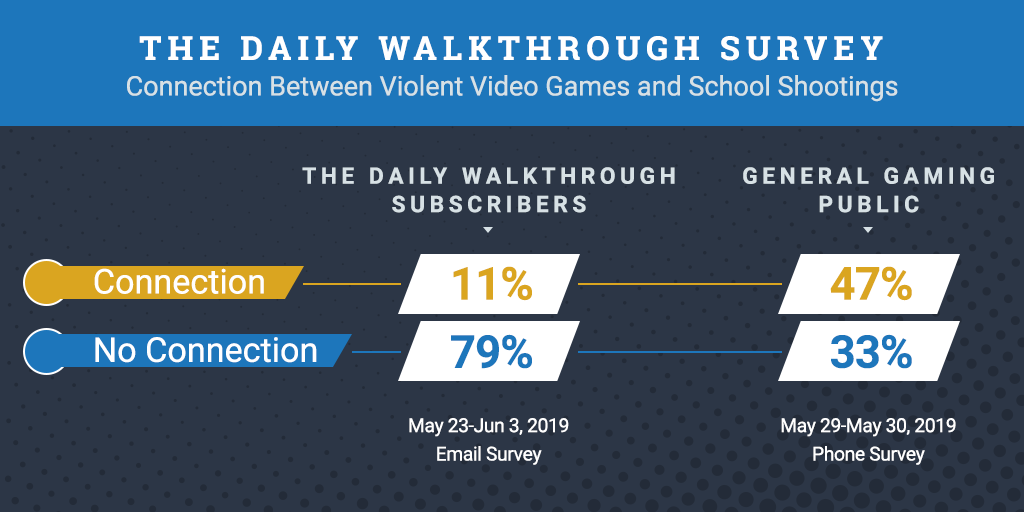
When we look at the age breakdown of this audience, more 18-34 year olds (46%) don’t think there is a connection, as opposed to 35% that do. We see slightly less 35-54 year olds that do not see a connection at 41%, but this changes considerably with the 55+ age demographic, where the majority (60%) think there is a connection between violent video games and school shootings.
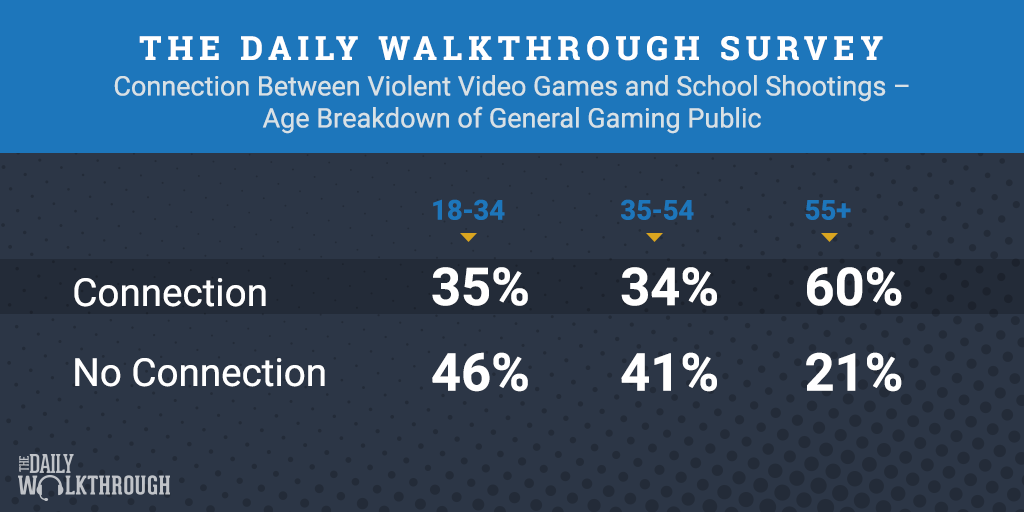
Breaking down the GGP audience by gender, we can see some differences between the two. Females are more firm in their belief with 54% thinking there is a connection, 29% thinking the opposite, and 17% are unsure. Males, on the other hand, are more evenly split, where 39% think there is a connection and another 39% think there is not. 22% of males are unsure on this issue, a greater percentage than their female counterparts.
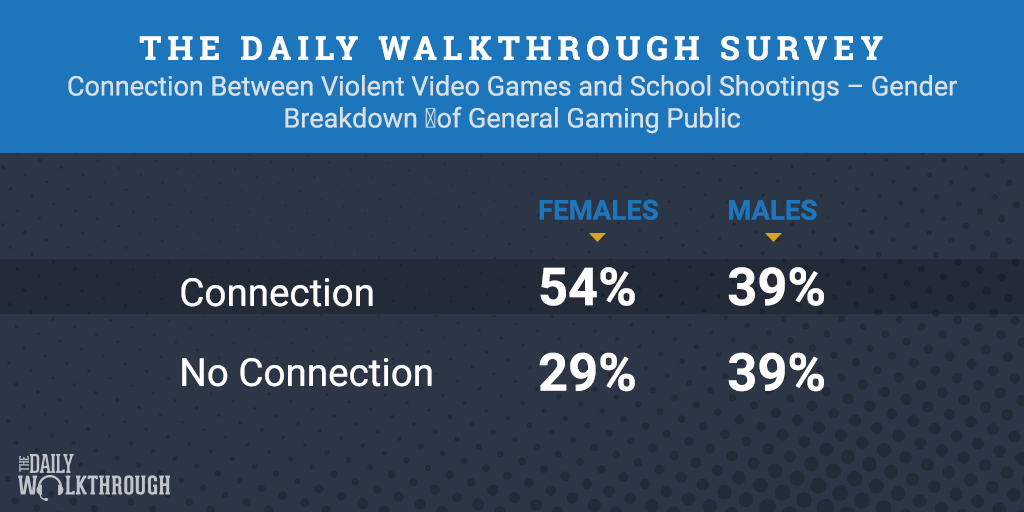
With the recent classification of ‘gaming disorder’ by the World Health Organization, we may see a larger percentage of people who associate violent video games with school shootings, or other unrelated societal issues.
Sexism in the Industry – Important or Not?
On the issue of sexism in the gaming industry, 89% of TDW subscribers believe it is either very or somewhat important, with 11% indicating that the issue is not very important or important at all. Conversely, the GGP is much more divided on the issue, with 49% reporting that sexism is very or somewhat important to them and 42% reporting that it is not very important or not important at all.
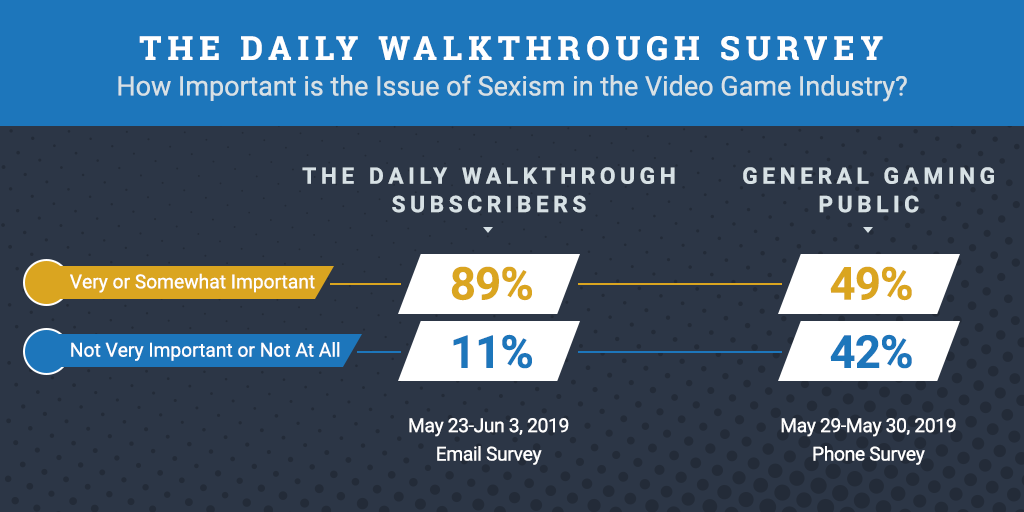
Once again, we see that females are more sure of their opinions while male responses were divided. The majority of females (55%) think sexism in the industry is either very or somewhat important, while 36% think it is either somewhat unimportant or not important at all.
On the other hand, only 44% of males think the issue is very or somewhat important, and 48% think it is either somewhat unimportant or not important at all.
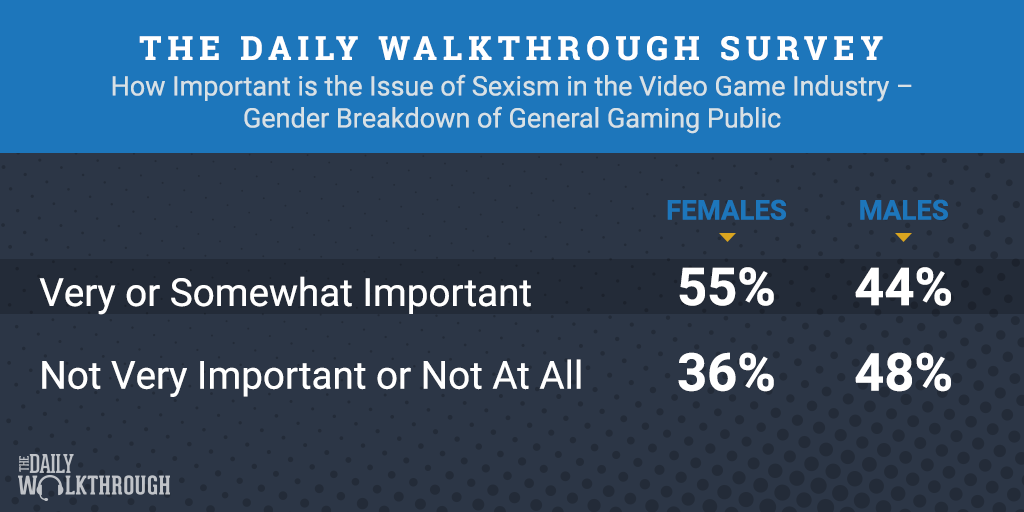
As the esports industry grows and becomes more diverse, we see that the need to address sexism in the industry as more important than ever. Last year, it was revealed that there was a “culture of sexism” at Riot Games, where gender-based discrimination allegedly occured on a frequent basis. Ignoring these issues or even worse, failing to properly address them, will only hurt all of us going forward.
What’s Coming Up Next?
The esports industry is currently experiencing unprecedented growth in terms of mainstream popularity and investment. Is this growth sustainable? Will the current top esports titles maintain their supremacy?
We’ll examine these questions and more in our next post. Don’t miss it!
Methodology
Between 05/29-05/30, we surveyed 3,942 individuals of the general gaming public via landline and cell. The general gaming public were defined as nationwide adults who indicated in the survey that they play video games. Between 05/23-06/03, we surveyed a representative sample of our readership via email. More specifically, only individuals who are subscribed to our email newsletters were surveyed. Margin of error is ±1.6 for the general gaming public. Sample was weighted by age, gender, and income levels. Results were then re-balanced based on these cohorts.

